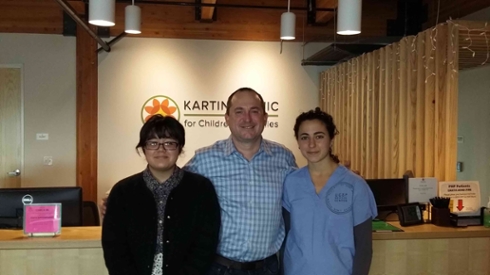Kartini Clinic for Pediatric Eating Disorders: Mitra Shokat, Winter Shadow 2016

Kartini Clinic is a small health clinic in Northeast Portland that offers treatment for pediatric patients with eating disorders. Kartini’s approach to eating disorder treatment differs in many ways from that of other facilities. The clinic’s treatment program is family-based and places an emphasis on eating disorders as genetic metabolic disorders instead of psychiatric disorders. In the past year, Kartini Clinic has even implemented individualized genetic testing as a part of their treatment process.
Upon intake, Kartini Clinic patients, ranging in age from 6 to 23 years old, are placed in one of the clinic’s three stages of treatment: the partial hospitalization program, the intensive outpatient program, or the outpatient program. During my two weeks shadowing one of the clinic’s medical assistants, I was given the chance to observe all three levels of treatment. However, I primarily interacted with patients in the partial hospitalization program, taking vitals each morning and occasionally eating meals with them. I learned some incredibly useful skills over the course of those two weeks, including how to take blood pressure manually, how to analyze urine samples, and how to recognize abnormal levels in certain vital measurements.
During my time at Kartini Clinic, I also conducted research. I was responsible for collecting data on the initial diagnoses and intake medications of one hundred of the clinic’s most severe patients. This data will later be compared to the results of genetic testing for those patients. This genetic testing, conducted by a company called Genomind, gives the doctors at Kartini Clinic information about specific mutations that are commonly associated with negative reactions to certain psychoactive drugs. This type of information is invaluable to the doctors, as they often prescribe psychoactive drugs to combat the anxiety and depression that often accompany eating disorders. The goal of our research is to observe any correlations between the results from this genetic testing and the severity of the patient.
My experience at Kartini Clinic went far beyond what I expected from a typical shadow. While I anticipated my role being primarily observational, I was wonderfully surprised when I was given opportunities to work hands on in a clinical setting. I am incredibly grateful for this opportunity, and I now feel that I am more equipped to make a decision about the type of work I want to pursue after Reed.
Tags: winter shadow, externship, pediatrics, eating disorders, psychology, pathology, genetics, research, medicine
